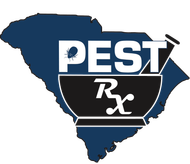SC Pest Library
Termites
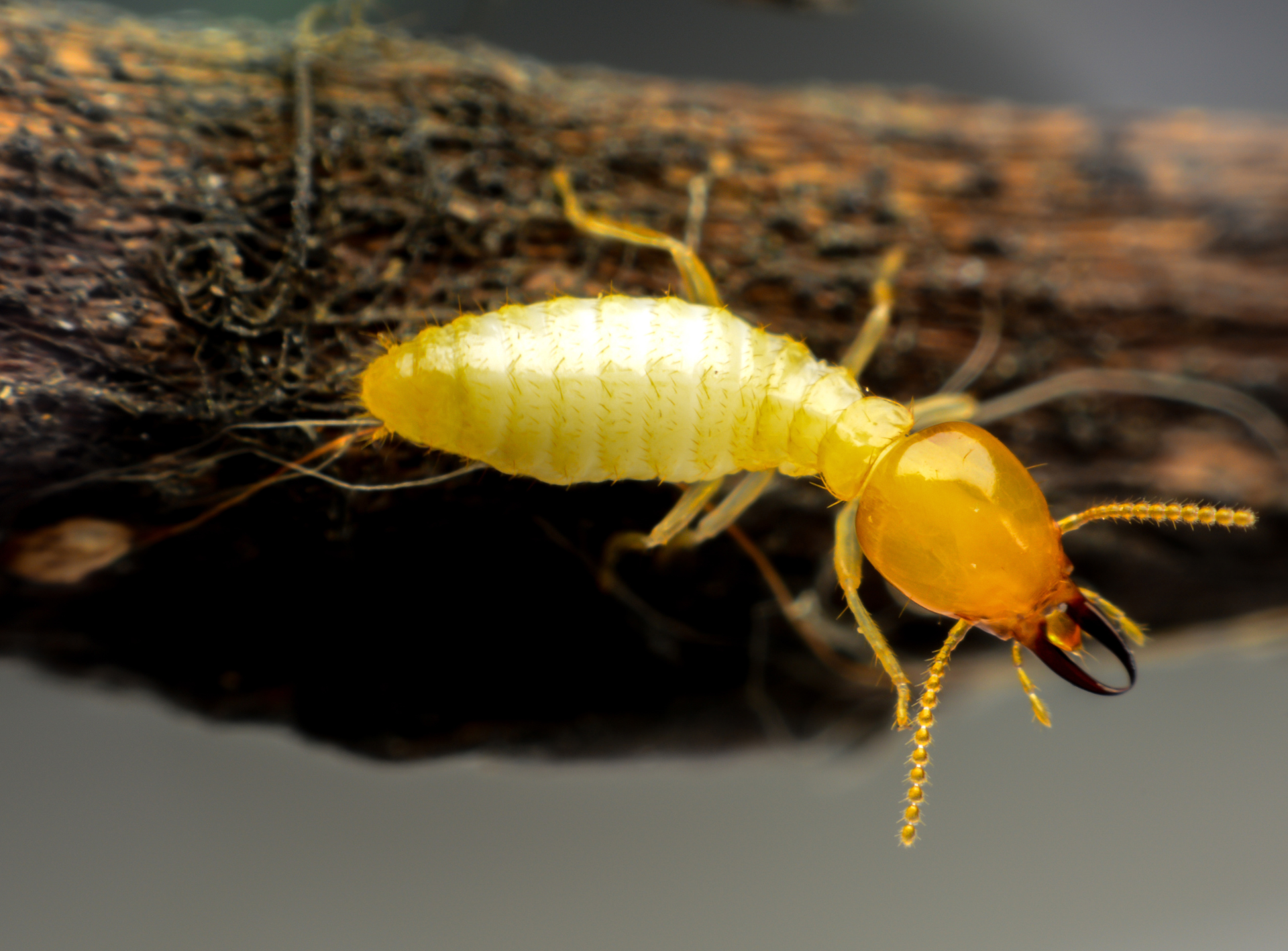
Termites have been around since the time of the dinosaurs and on every continent except Antarctica. They are very small insects that are part of the Cockroach family. Why should this surprise us, ugh?! They cause more than $5 BILLION dollars in property damage every year because they love to feast on wood, dead plant material, and cellulose...like the wood, walls, flooring, wallpaper, and more in your home or facility. This makes them detritivores.
Over 3,100 types of termites have been identified and described and there are still more to go. They have a very unique microbial ecosystem in their tiny termite gut that is found nowhere else on earth. They are vital to our ecosystem because they recycle dead plant material, wood, plants, and feces. They produce a whole bunch of atmospheric methane and a major source of greenhouse gases affecting our planet today.
Termite Facts & Info
- Scientific Name: Isoptera
- They have the longest lifespan of any insect with some queens living 30-50 years.
- They live in colonies with distinct castes with workers, soldiers, fertile kings, and very fertile queens.
- Their colonies may be as small as several hundred to as large as several million individuals.
- Some human cultures consider them a delicacy and others use them in medicine.
- Termite reproduction involves an Alate male and female taking a nuptial flight and leaving their colony to go create their own. They create their colony with enough space to mate, are monogamous, and never go outside again. {Who finds out this stuff, right?!}
- A termite queen may only lay 10-20 eggs in the beginning but she will progress to 1,000 a day and may produce as many as 40,000 per day at maturity.
- Detritivores that like to eat dead plants at any level of decomposition and some can eat cellulose.
- They have many predators including birds, arthropods, dragonflies, lizards, reptiles, frogs and toads, anteaters, bats, bears, sloths, and, last but not least, ME!
- Most termites are blind so they communicate through antennation, pheromonal cues, and other chemical and mechanical means.
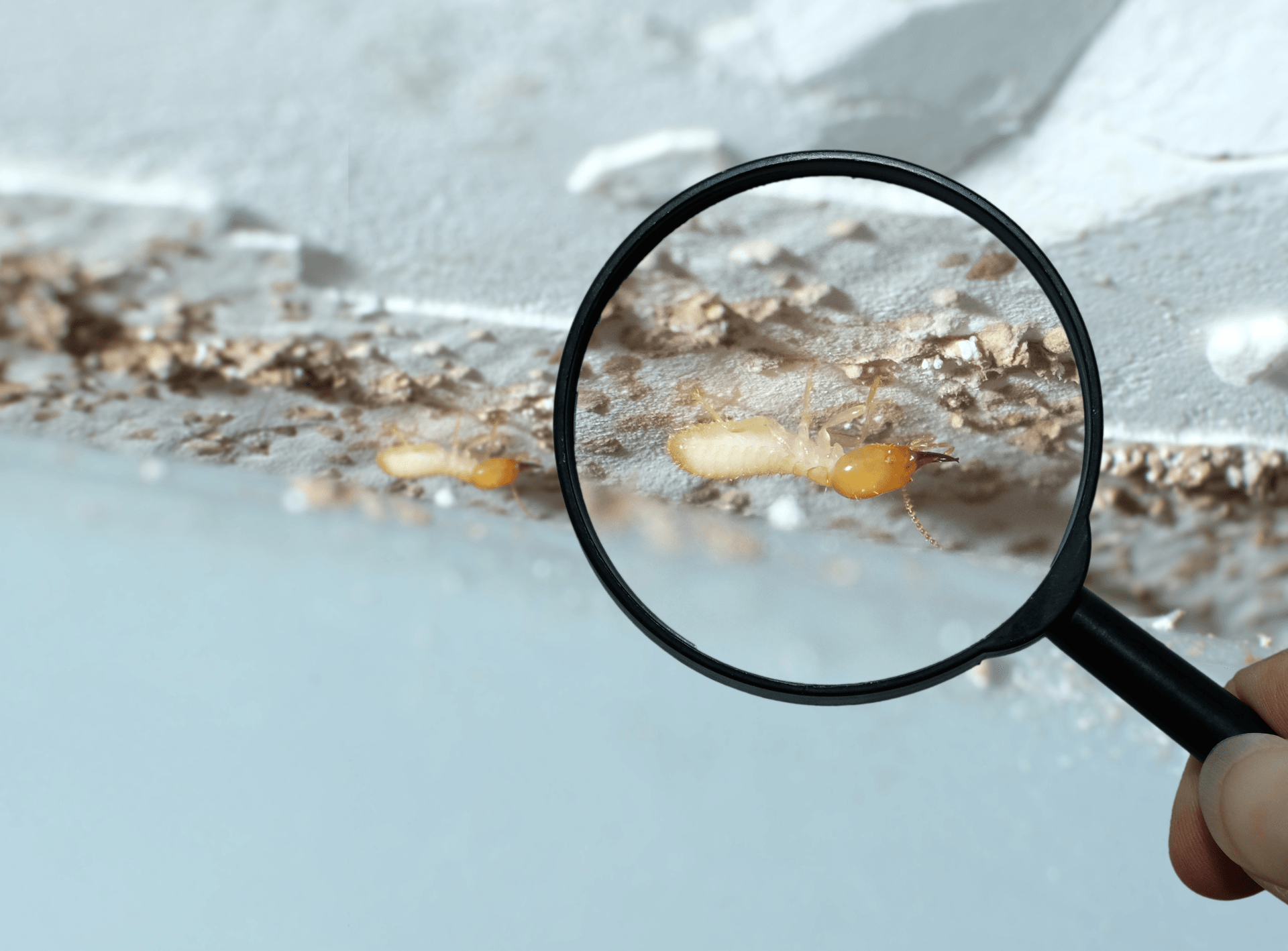
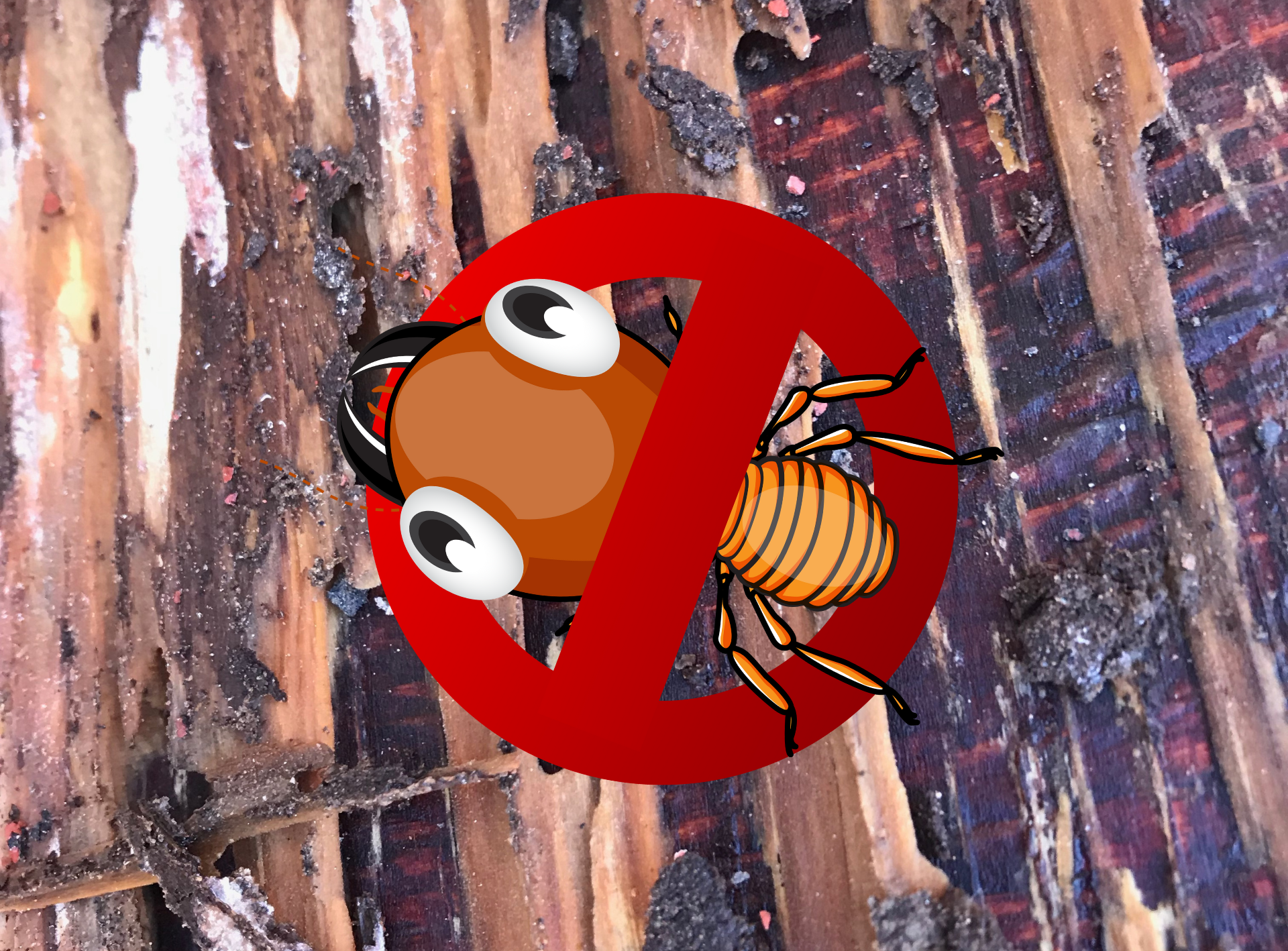
Damage & Destruction
Termites cause billions of dollars in property damage every year and it is NOT covered by your homeowner or property insurance. It is important to get regular treatment to protect your investment. If you want to learn more, the EPA has great information on their website. Visit them at the link below.
Mosquitoes
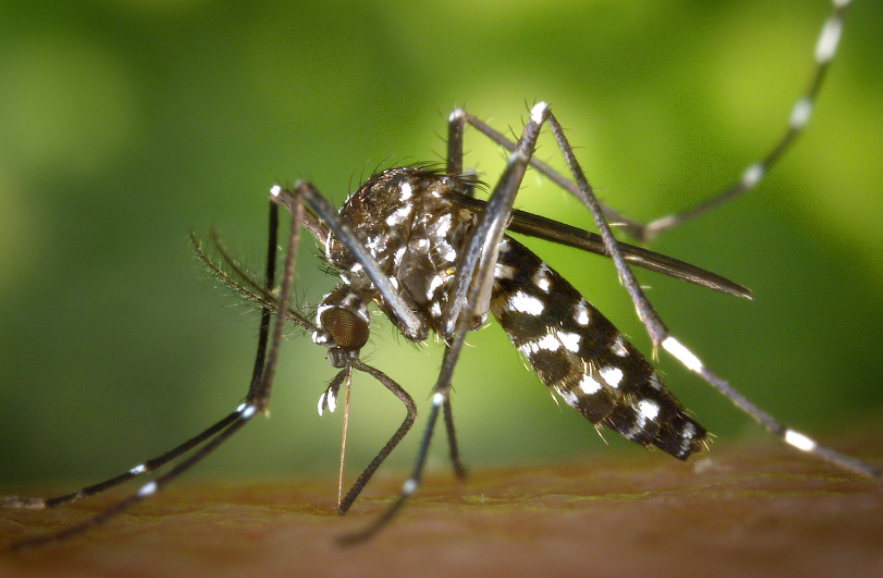
Mosquitoes are small flies within the family Culicidae; a group of almost 3,600 species. The word "mosquito" means "little fly" in Spanish and Portuguese. Mosquitoes have a slender segmented body, one pair of wings, one pair of halteres, three pairs of long hair-like legs, and elongated mouthparts. They can spread germs or pathogens through their bites which may lead to West Nile virus, Dengue, Malaria, Zika and worse.
Over 200 types of mosquitoes live in the US but only 12 of these types spread germs. The rest are just a big nuisance. Do you ever wonder why mosquitoes bite certain people more than others? Check out this cool article to learn more about how they find you.
Mosquito Facts & Info
- Scientific Name: Culicidae
- Speed: 1-1.5 mph
- Typical Lifespan: 42-56 days (Female, Adult) 10 days (Male, Adult)
- They can live outdoors and indoors.
- They love to bite you no matter the time, day or night.
- They may only live 2-4 weeks but they can do a lot of damage in that time.
- Male mosquitoes do not bite or transmit diseases. They live on nectar from plants to survive.
- Females need blood to produce eggs so they thrive on biting people and animals. Don't believe that old myth that they die when they bite you...if that was the case, they would die out. We can only wish!
- Season is from Spring into the Fall. Because of South Carolina's climate, we have active mosquito populations longer than many other states. They thrive in warm weather and hate the cold so they will disappear after the first big freeze and when winter temperatures are consistent.
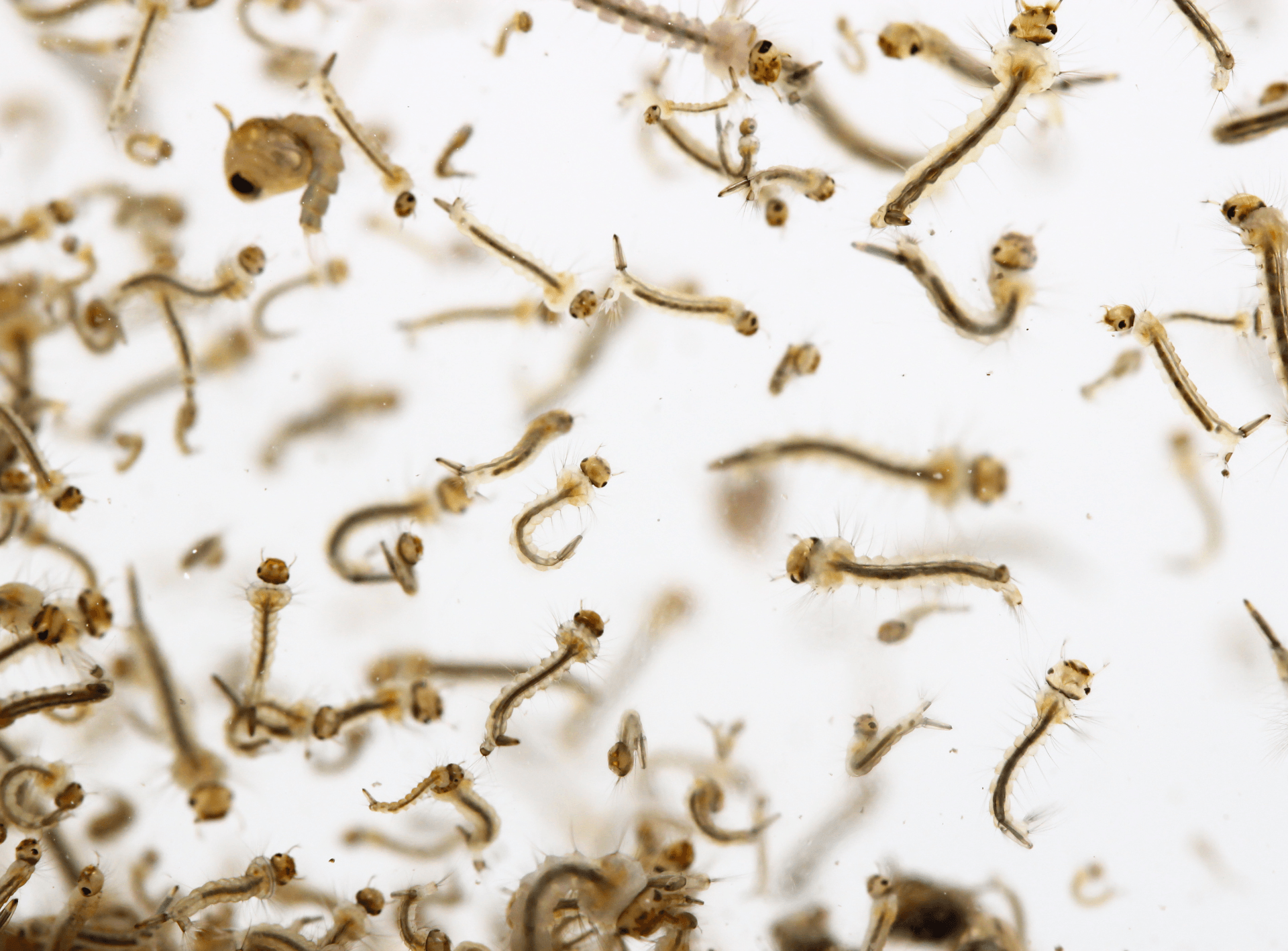
Life Cycle of Aedes aegypti & Aedes albopictus Mosquitoes
Check out this great resource from the CDC about the life cycle of mosquitoes. You can learn even more by visiting their website.
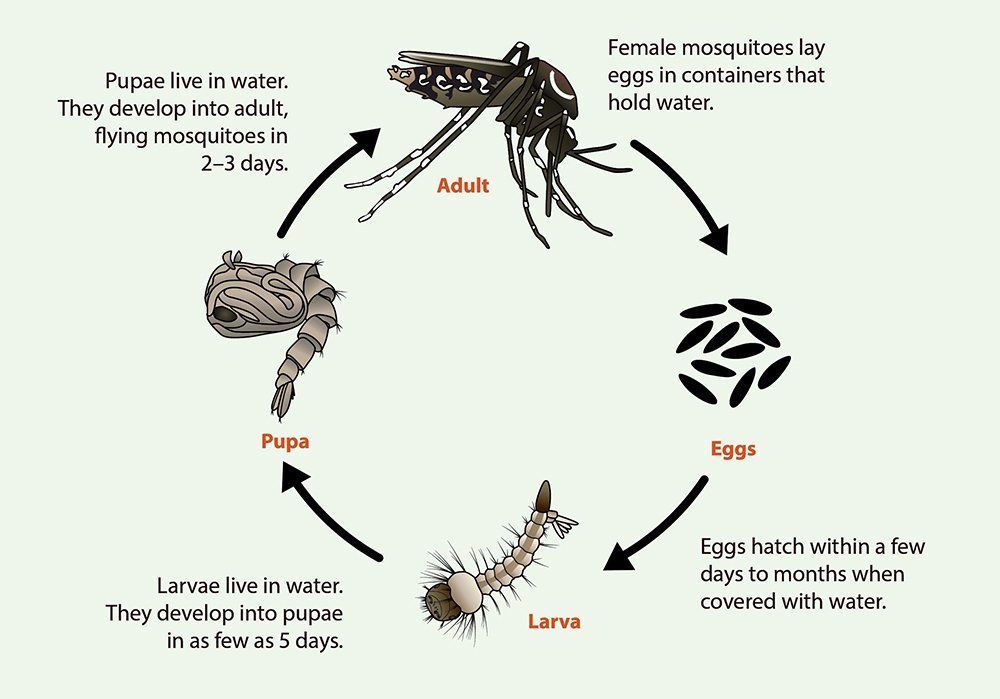

For further information about Pest Rx, a free estimate, or to schedule a service, call (864) 419-3766.
